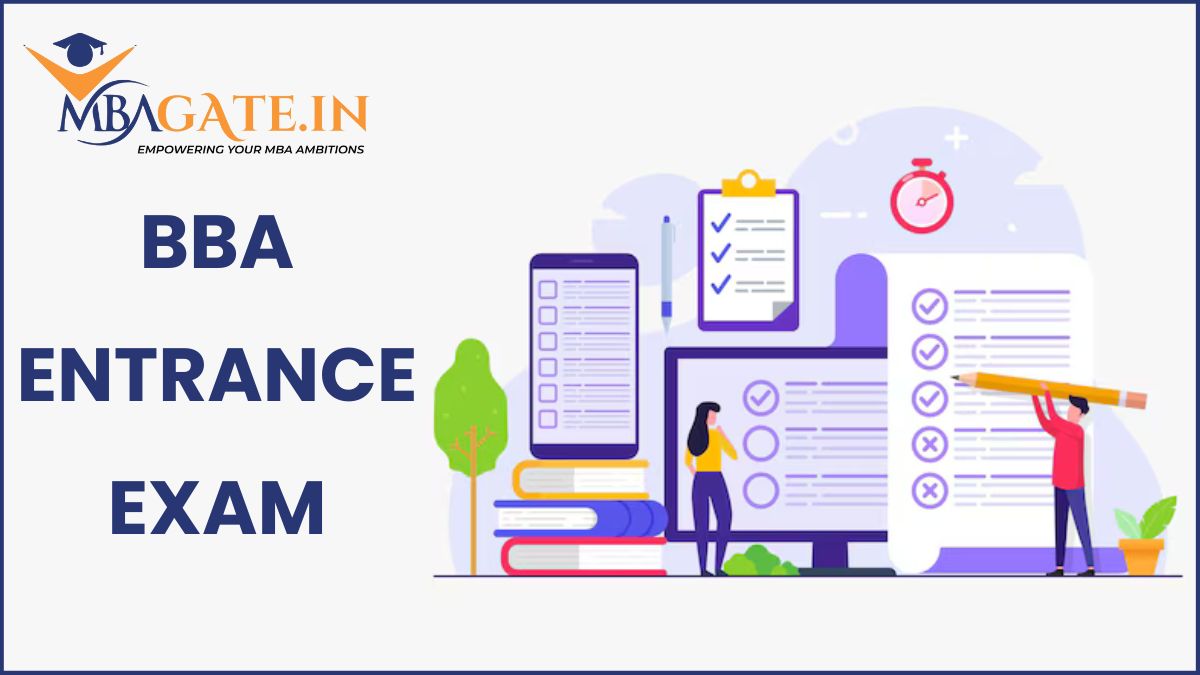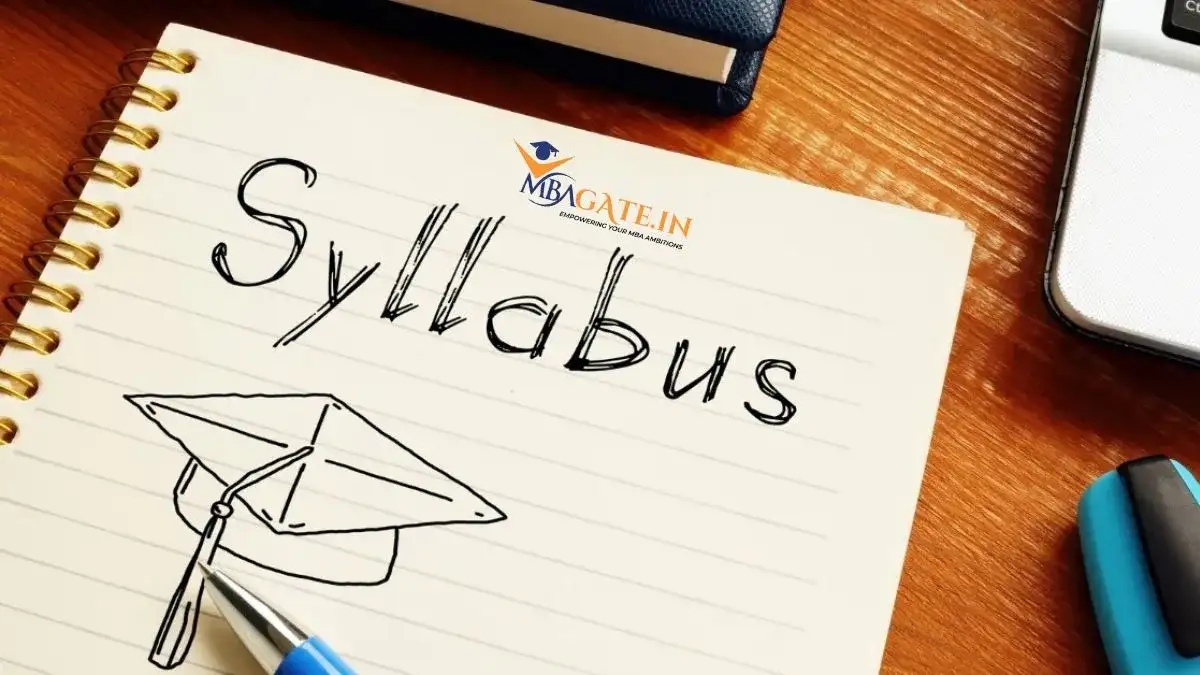BBA vs BCom: Key differences, career prospects and Top colleges in India
Table of Content
-
- + more items Show less
BCom is a degree that focuses on financial and economic topics. These topics include accounting, taxation and auditing. This course is ideal for students who want to make a career in finance and banking jobs or pursue professional degrees like CA or CFA.
The BBA program focuses on management, leadership and practical business skills. BBA courses are also offered in various formats full-time, part-time, BBA distance courses, BBA online programs etc. BBA courses have various specialisations. Some of the popular specialisations are marketing, operations, human resources, entrepreneurship, supply chain management etc.
Both degrees offer distinct advantages and the choice depends on the interests of the student and what they want to become.
BBA Meaning
BBA is a 3-year undergraduate programs. The programs aim to provide students with basic knowledge and skills needed to manage and lead in business environments. Some of the popular specialisations are marketing, operations, human resources, entrepreneurship and supply chain management. According to the curriculum of BBA, candidates learn various skills, such as critical thinking, leadership and communication skills. These skills are important for executive progress in the business world.
For admission to BBA, candidates must have passed Class 12 from an affiliated school with a minimum of 50% aggregate marks. Admission to BBA courses is offered through entrance or merit, depending on the college/university. BBA courses are offered in various formats including full-time, part-time, distance courses, online programs etc. Some BBA colleges conduct the BBA entrance examinations, which include CUET, IPU CET, SET and AIMA UGAT etc.
Highlights Of The BBA Course
BBA is a 3-year undergraduate program. To pursue this course, the student must pass Class 12 with a minimum of 50% in any stream. This can be done in various forms such as full-time, part-time, distance and online. This program is available in institutions like Symbiosis, IMS Noida and Amity University. The average salary one can expect after graduating from this course is from ₹3 lakhs to ₹10 lakh per annum. The fee for the course ranges from ₹ 5.40 to ₹ 11.62 lakh per annum.
BBA Syllabus
The BBA (Bachelor of Business Administration) curriculum helps students learn the basics of business principles, management practices and leadership. It introduces the students to foundational skills of business, i.e., the subject areas of accounting, finance and marketing. Here are the key highlights of the BBA syllabus:
Professional Development During BBA
While pursuing a BBA (Bachelor of Business Administration) program, applicants learn various technical skills that are important for success in the business world. Here’s an introduction to the key technical lessons learnt during a BBA:
Business Management Skills: During the program, candidates learn how to run a business and solve issues related to businesses.
Financial Management Skills: Aspirants learn to analyse financial data and prepare a financial report under BBA program.
Marketing and digital marketing skills: During BBA, aspirants prepare marketing tools and strategies and they learn to use these tools and strategies.
Accounting and financial analysis: Aspirants get knowledge of financial account keeping.
Project management techniques: Aspirants learn to manage time and deliver projects on time and within a budget.
Skill Development During BBA
While pursuing BBA, candidates not only learn technical skills but also develop skills useful in a social atmosphere. Here’s an introduction to the personal lessons learned:
Leadership and teamwork: While doing BBA, the leadership and teamwork abilities of the candidates are enhanced. Candidates learn to collaborate with others.
Time Management: During BBA courses, complex assignments, projects and exams teach students the art of managing deadlines and prioritising tasks.
Problem-Solving and Critical Thinking: BBA students mostly conduct case studies, real-world problems that improve their ability to think carefully and find solutions.
Communication Skills: In the BBA program, through presentations, group discussions and written reports, aspirants enhance their verbal communication skills. This improves the fluency of speaking and polishes their art of writing.
Flexibility: Under the BBA program, candidates learn to face challenges and get through tough situations.
BBA Career Prospects And Job Opportunities
A BBA (Bachelor of Business Administration) degree opens up career opportunities in various sectors. The program focuses on business, management and leadership skills. After doing BBA candidates can get various job roles such as research analyst, commodity trader, accountant, leadership skills and loan officer. Here are some career prospects and job opportunities under this program:
Higher Studies After Completing BBA
There are various courses available for students on completion of a BBA program for further study and career development. These courses further allow candidates to increase competencies in such fields as business management, finance and commerce. Following is a brief description of popular courses that can be pursued after completing a BBA:
Top BBA Colleges in India In IIRF Ranking
BBA (Bachelor of Business Administration) is a three-year undergraduate program. The candidates can pursue this course after completing class 12 with a minimum of 55% marks. Some top BBA colleges on the list involve Delhi Technological University, University College Mangalore, Government College Autonomous Rajahmundry, Loyola College, Christ University etc.
BCom Meaning
BCom stands for Bachelor of Commerce. It is a three year undergraduate course. This course provides students with a conceptual understanding of business, finance and marketing. It can be pursued after completing Class 12. BCom focuses on the following subjects: accounting, taxation, economics and financial management.
The curriculum of the Bachelor of Commerce consists of core subjects in commerce and business. Students learn the fundamentals of accounting, finance, economics, business law and taxation. To be eligible for BCom, candidates must have studied commerce subjects in their class 12 studies. Commerce subjects include accounting, business studies, economics and statistics.
Highlights of the BCom Course
Bcom (Bachelor of Commerce) is a 3 year undergraduate course. It has been designed for students who have passed class 12 with a specialisation in commerce and accounting. The curriculum includes topics like accounts, business studies and economics. In this course, admission is taken through entrance examinations (such as CUET and IPUCET) or by merit. In offline mode, an exam is conducted. In Bcom courses, fees start from ₹ 0.03 lakhs to ₹0.60 lakhs. Institutions like SRCC, Ramjas College and Christ University are among the top colleges that provide BCom courses. Here are some key highlights of the BCom course:
BCom Syllabus
Bachelor of Commerce (BCom) is designed to give students an overall understanding of the basics of business, accounting, finance, economics and management. The subjects that are taught in BCom syllabus are designed to provide the student with both theoretical knowledge and practical skills. These skills are necessary for a successful career in commerce. Here is the list of subjects in the BCom syllabus:
Professional Development During Bcom
During the program, BCom (Bachelor of Commerce) , students get a broad knowledge of technical skills which will provide a successful career in business and accounting. These competencies arise from the analysis of major disciplines, including cost accounting, auditing, economics, taxation, business law and financial management. Following are some of the most important technical skills while pursuing a BCom course:
Cost Accounting: Candidates improve their skills in preparing cost sheets, conducting variance analysis, allocating costs and applying various costing methods, including job costing, process costing and standard costing.
Taxation (Income Tax & GST): Candidate’s skill to calculate taxable income, apply tax deductions and exemptions, file income tax returns and understand indirect taxes such as Goods and Services Tax (GST).
Business Law: In this, candidates learn to generate drafting business contracts, knowing intellectual property law and conflict resolution.
Financial Management: Ability to analyse financial statements, capital budgeting, working capital management and management of cost of capital and the capital structure.
Auditing: Enhance their skills in audit techniques, vouching, verification of assets, audit reports and use of audit packages.
Skill Development During BCom
The personal experiences gained in a BCom (Bachelor of Commerce) course extend beyond pure technical skills. These lessons have an impact on the character, work ethic and general perspective towards life and work problems of a student. Following are some of the most relevant personal insights that most students learnt in the BCom program:
Time Management and Discipline: Time management for students is organising every activity, such as studying, going to class, completing tasks, etc. so that it will lead to a good academic performance.
Adaptability and Flexibility: For students, adaptability refers to changing the accommodation to emerging business trends or duties. Flexibility refers to being able to accommodate changes to job roles or strategies. Both skills support dynamic work environments and their promotion toward career advancement.
Communication and Interpersonal Skills: Presentations, working together in groups, and team projects teach candidates to communicate confidently and to work cooperatively with others.
Financial Responsibility and Awareness: Financial skills for students to control personal and business finances thoughtfully, budget responsibly, think through how much they should spend, etc. Financial literacy includes the knowledge of economic cycles, financial markets and business expenses.
Self-motivation and independence: BCom aspirants are frequently asked to work (alone), such as writing assignments, studying for course examinations or doing research.
BCom Career Prospects And Job Opportunities
A Bachelor of Commerce (BCom) qualification provides access to a variety of careers in many business sectors. The ability gained through the BCom program, which comprises the knowledge of accounting, finance, economics, business law and management, is much desired in the private and public sectors. Following are some of the leading career prospects and career openings for BCom candidates:
Higher Studies After Completing BCom
After completing Bachelor of Commerce (BCom), students get a substantial fundamental understanding of the future areas of learning there are, as defined by the choice of future areas of learning that they opt to pursue. These are some of the common postgraduate options that are available after completing a BCom and details of each are as follows:
Top 10 BCom Colleges In India
Bcom (Bachelor of Commerce) is an undergraduate course. Candidates can pursue Bcom after passing class 12 from a recognised board and university. In Bcom, subjects such as accounts, business studies, economics and statistics are included. Some colleges take admission in Bcom courses through the entrance exams and some take admission on a merit basis. Some colleges like Shri Ram College of Commerce (SRCC), Hindu College, Hansraj College, Madras Christian College (Autonomous), etc. are the top Bcom colleges. Here are the top 10 colleges listed.
Note: The top 10 BCom colleges are listed above according to the India Today ranking.
Similarities Between BBA and BCom
BBA and BCom are two programs, both of which are quite similar. Both courses can be pursued after passing class 12 and the eligibility criteria for both are the same. For BCom, the candidate should have passed class 12 with commerce as the stream. Selection for both courses is also similar, being mostly merit-based admissions, entrance exams or interviews, depending upon the institution.
Both the courses are designed similarly and have a lot of common subjects. Both courses are overlapping subjects such as accounting, business law, economics and management principles, especially during the first years.
Difference Between BBA And BCom
There are many differences between BCom and BBA courses. BCom provides intellectual and theoretical knowledge; it focuses on building up a good foundation of financial concepts. The following are some differences between BCom and BBA:
FAQs
Candidates become confused between BBA and BCom and whether to choose BBA or Bcom for their career advancement. BBA is for candidates who want to pursue a career in the fields of business management, marketing or entrepreneurship. It focuses on the aspects of leadership and business skills. On the other hand, BCom is suitable for candidates who are interested in accounting, finance or economics. While those planning to enter into management or business careers may find BBA more suitable and BCom is better for those candidates who want to make a career in finance and accounting.
It is not possible to pursue BCom and BBA together, as both are full-time undergraduate degrees that involve a significant amount of time and effort. Balancing both may affect the candidate's performance. But at certain universities dual degree programs may be available that include in part both BCom and BBA, enabling students to learn both courses at the same time.
BBA graduates are higher earners than BCom graduates, as BBA covers management, marketing and leadership tasks, which frequently offer higher salaries. In contrast, BCom is more specific in finance and accounting, so it will provide a lower salary compared to the BBA course. However, salary varies by industry and experience.









